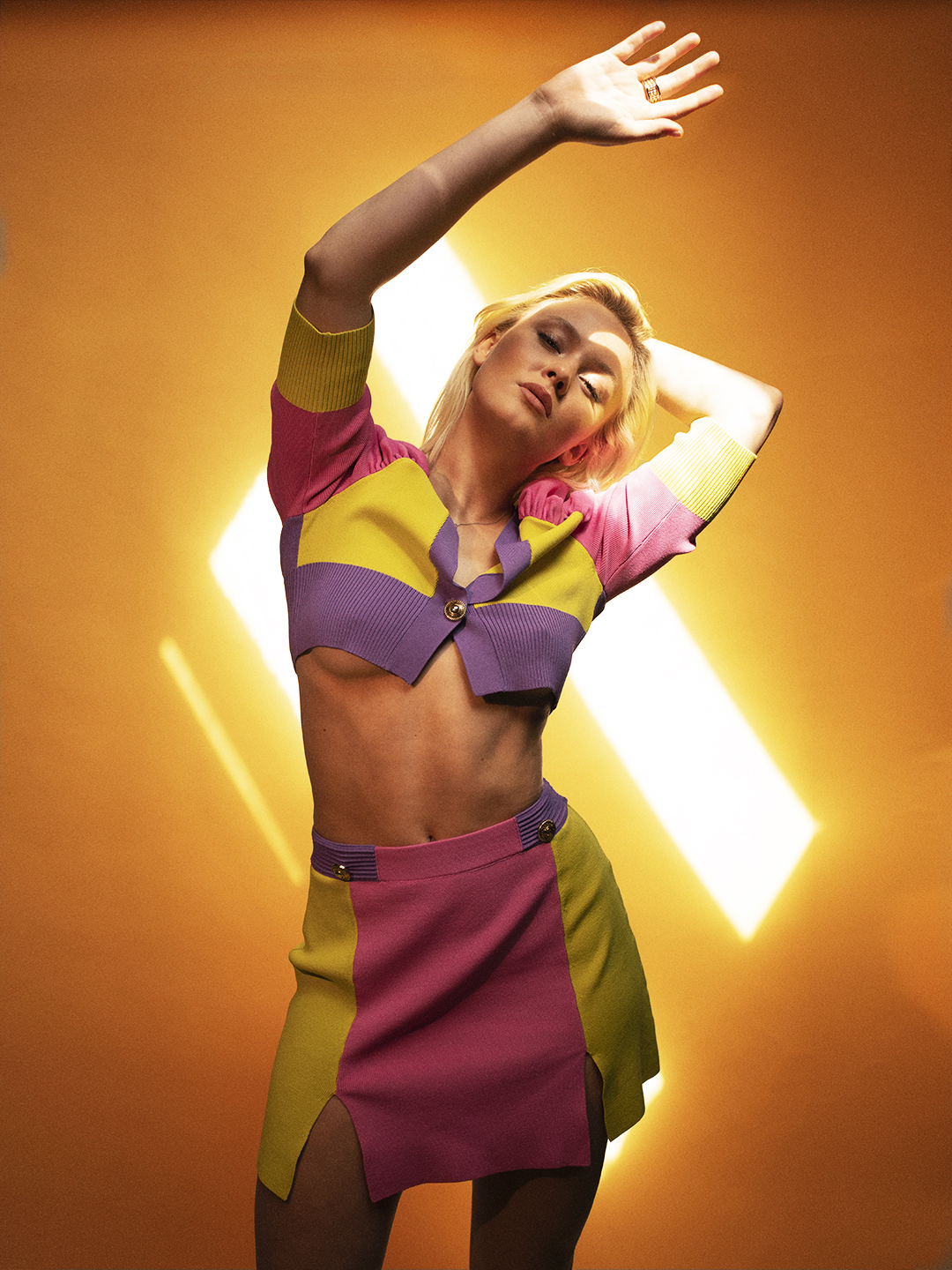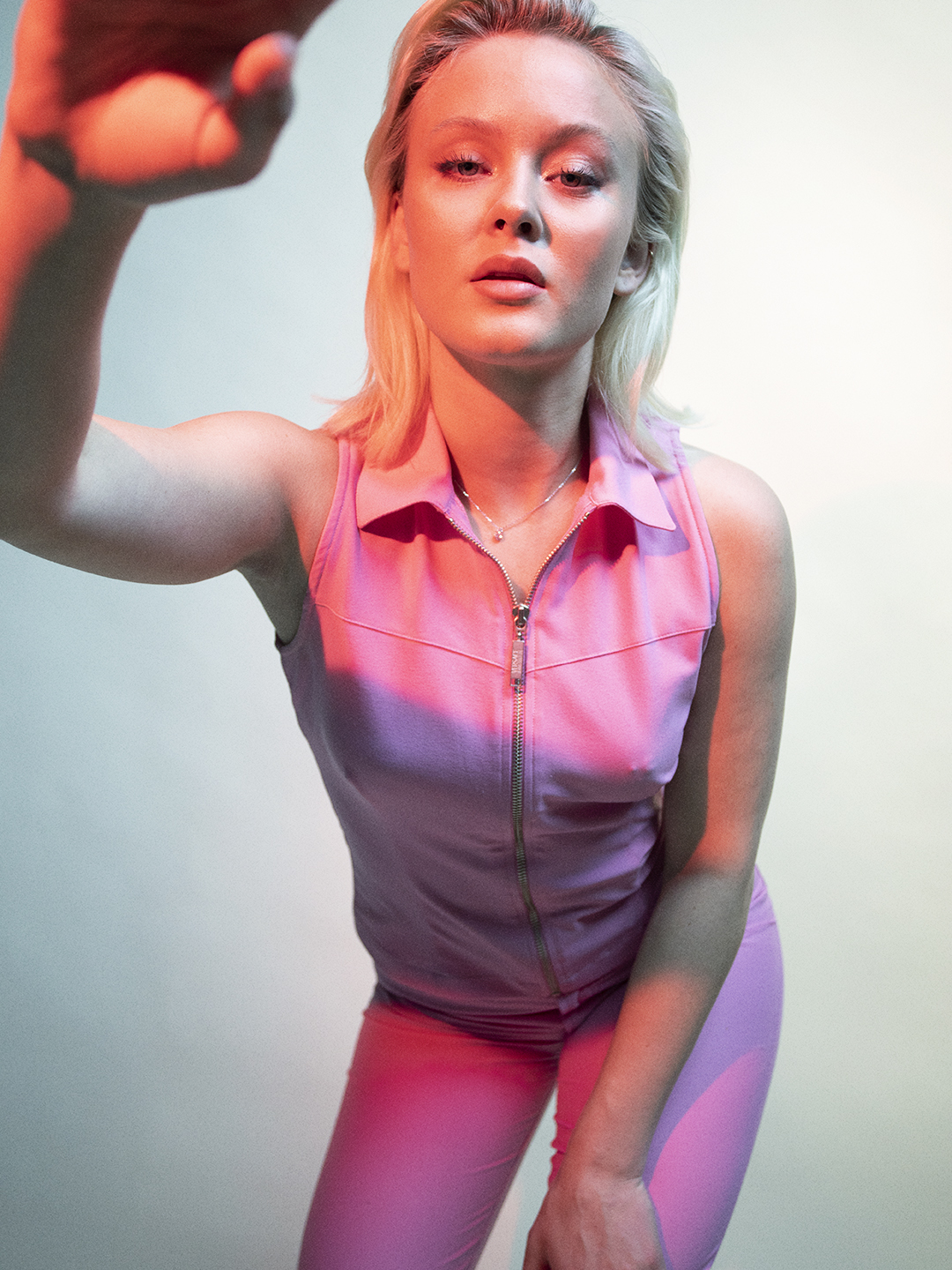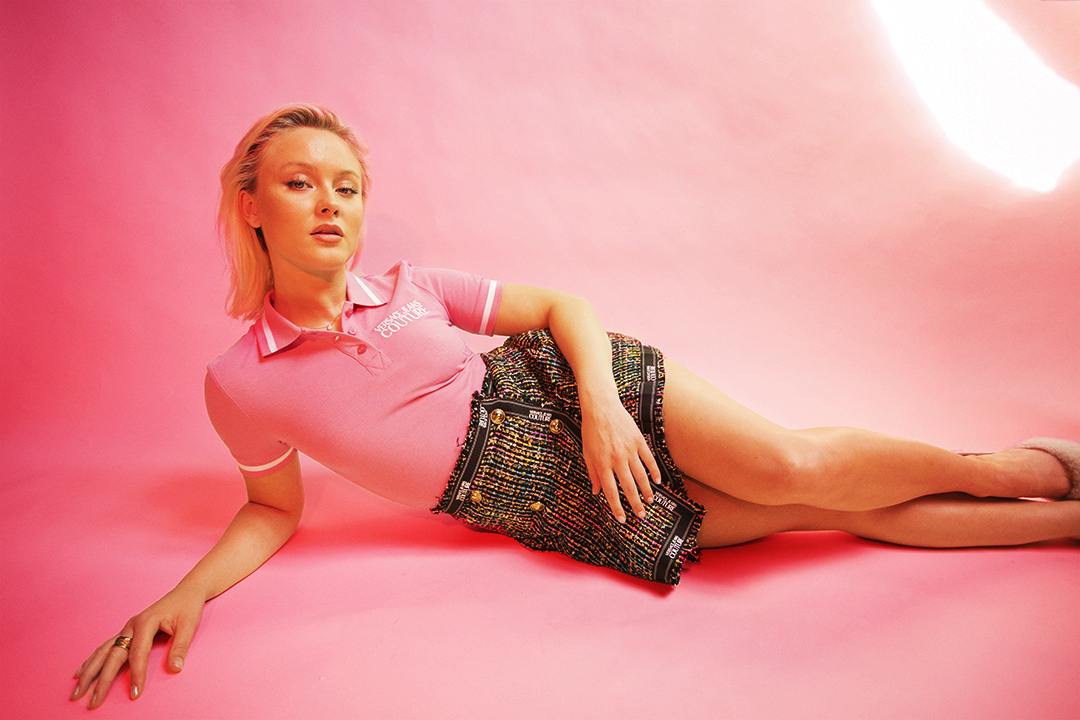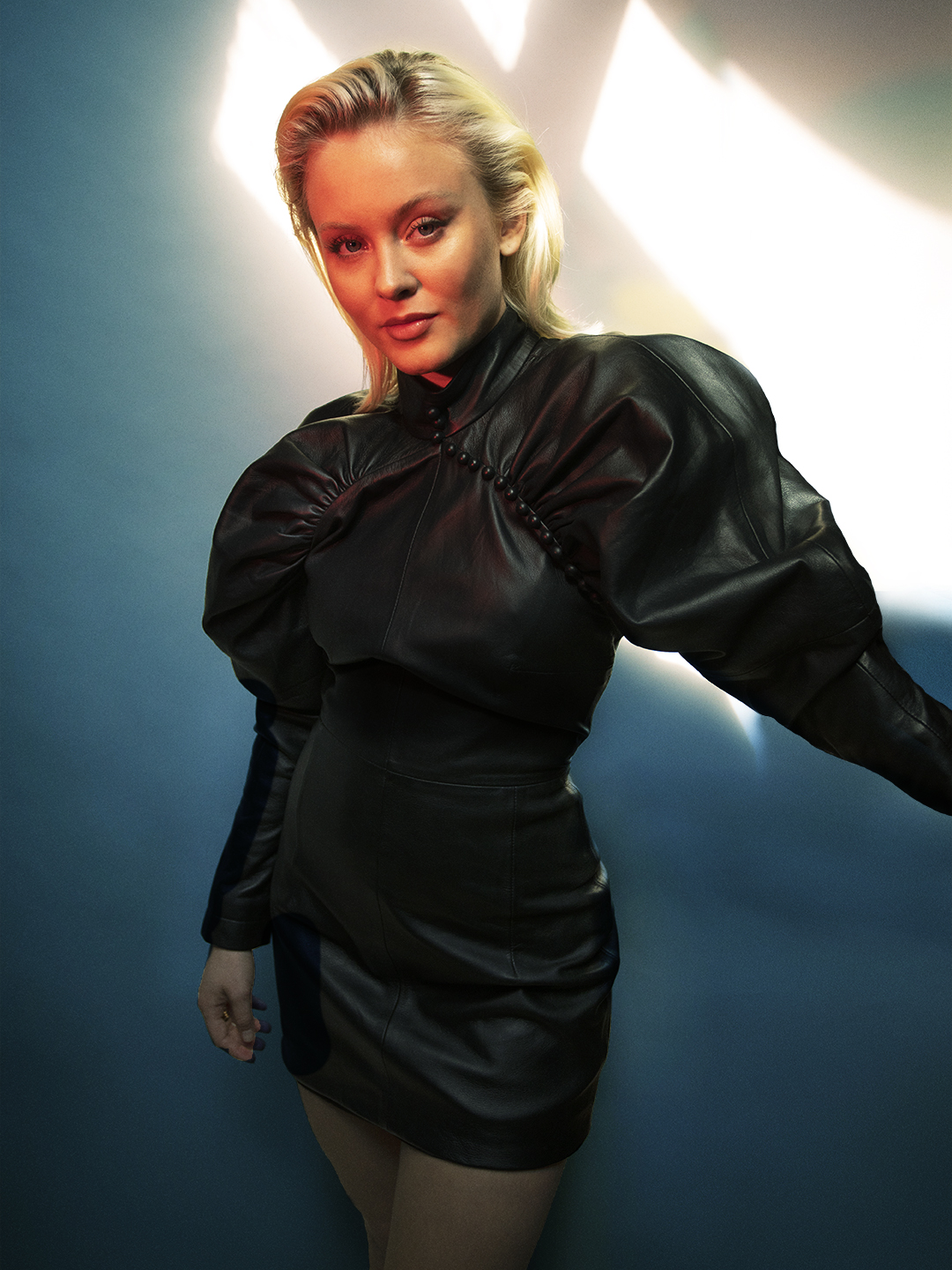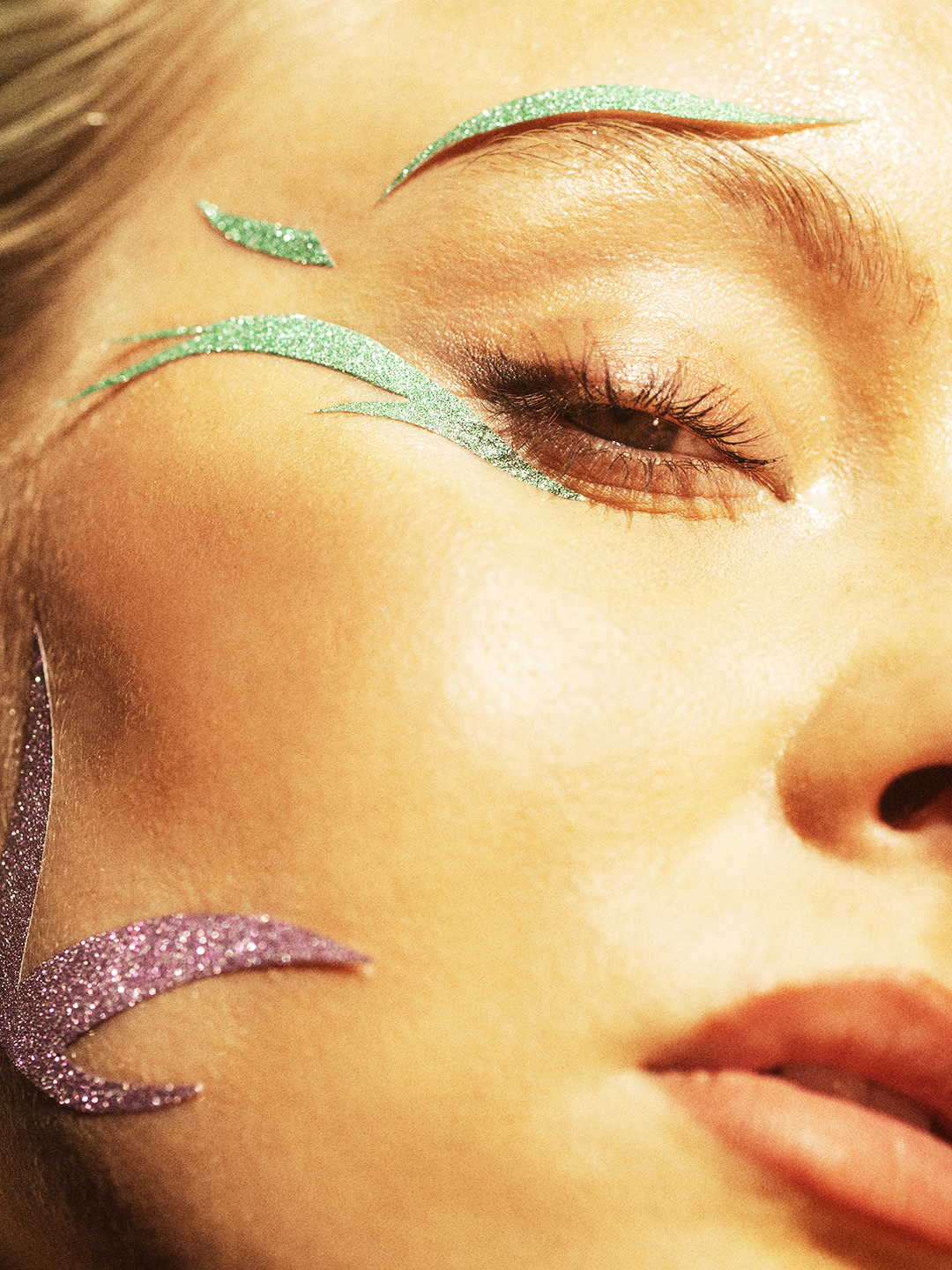Zara Larsson, Pop’s Time Machine
When it comes to Pop, you don’t have to reinvent the wheel to spin a good track.
Pop music has been changing at an accelerated pace, which is to be celebrated. Billie Eilish is a walking think piece on breaking the mold. Lana Del Rey came to international fame with a particularly nostalgic subversion. Rosalia has infused traditional flamenco with hard-hitting hip-hop beats and flair. They all make Popular music in that their music is…popular, despite their varying degrees of separation from the Dance-Pop archetype of the 1990s.
But if we take a step back to consider the genre, or categorization, without the desire to drastically change it—if we imagine transporting a twenty-something Britney Spears to 2020, when a pandemic is overnighting our planet to a world of “what the absolute fuck,” what might that bring?
What I mean to ask is: what might pop music sound like if we allowed it to stay the same when the world is changing so drastically?
Zara Larsson might just be the answer. Her last album, So Good, was released three years ago and helped to bring the now 22-year-old Swede to international recognition. Now, the singer is preparing to release her second album, with singles “WOW” and “Love Me Land” teasing out the larger body of work. And while she has of course collaborated with some of the best Pop writers and producers in the industry, she is not one of the artists trying to severely alter the genre, although her music is still bound to make some history within it. Rather, she is paying homage to the now old-school sound by continuing to exercise it, just in its more traditional form.
On a typical Swedish summer day—warm but not muggy, quiet and with an air of appreciation for the famous winter’s absence, I visiting Zara in a recording studio in Stockholm. Swedish artist and photographer Arvida Byström came along to photograph her after the singer and I discussed what she refers to as “kind of a comeback.”
Mathias Rosenzweig: I know you’ve just wrapped up your album, for the most part. What was your life looking like in March?
Zara Larsson: I think I got to LA in February or March, and then some time at the end of March, I went back. So “Love Me Land” was actually the last [studio] session I had before LA went into lockdown. It’s funny because I’ve been working on the album for about three years. And then, of course, the last song—that’s gonna be the single. But that’s how it usually is. I just felt like it was kind of meant to be. When I left the studio that evening, I was just like, “I fucking love this song.” And I’m tired of overthinking stuff because I’ll never be happy, anyways. Or I’m chasing like, this thing that I always want to beat. I want to beat what I have. I want to make it even more perfect. I want to make it better. And I think I would work on my album for like, three more years if people let me. And then I’ll just end up never doing anything.
Mathias: It’s good to have some restrictions in your creativity. Because otherwise…
Zara: And I just need to birth this baby. And it’s a process. Like, of course, it’s easy to look back now and say, “Oh, I wish I released my album two years ago!”
Mathias: But it wouldn’t be the same album.
Zara: It wouldn’t be the same album. But as of now, I’m very happy with what I got. And maybe it had to take three years, you know? To come to this. But I think it was me personally, who just felt like, “I’m not Rihanna, girl. What the fuck.” Like, I can’t take a six-year break and expect everyone to just wait for me. That’s not how the reality works. So even now, it’s kind of like a comeback in a way even though, I’ve been sporadically releasing some singles, droplets here and there. So even when I did “All The Time,” which I love, we were just kind of like, “Woop! Here’s a song.” You know what I mean? We didn’t have a plan.
So this time I just feel like it’s kind of a comeback. I feel so proud. And of course, I’ll hope it “does” [good] numbers. But I love “Love Me Land”, and what’s gonna come. But I can’t lie; I do love the art that I’m making, but also, I want to win. I want to win. I want to beat records. I wanna, you know, those are my dreams. To have a really cool, sold-out arena tour. I just feel like sometimes, when you look at artists that look like they all of a sudden blew up, it looks like they come from nowhere. But, then you like actually see what they’ve been doing and it’s usually years of hard work before they reach that point when they pop off.
Mathias: How is it for you being in the studio with producers, writers, etc. who are new to you? I can imagine that sometimes it works amazingly, but if the vibe is off while doing something so vulnerable, it would show in the results.
Zara: Well when you’re in a session, not only are you writing a song, but to create with people in general…you create a special bond. Like me and my friends, sometimes when we’re bored, we’re like, “Let’s do theater.” And we go in two and two usually, and we’ll give each other 30 minutes [to prepare] and then we act out the plays for each other.
Mathias: Plays that you wrote?
Zara: Yeah! And it’s like, the theme is Christmas; you can interpret it however you want. Or like, okay, this time the theme is gonna be “summer break.” We’ll do a little play for like three minutes. But it’s fun to do that because not only are they my closest friends, but also, when you create, when you fucking paint or dance or whatever, it’s really special to be with people and be so vulnerable. So to do a song with strangers, it can sometimes be…I mean, it’s Pop, so it doesn’t have to be super deep. But I really like it when I can put my flavor on it, because I’m not like the world’s greatest writer yet. I’m not anywhere close to Justin Tranter or Julia Michaels. So I feel like I have to be really comfortable to put my own flavor on it. These writers are so confident. They just pour words out of their mouths.
Mathias: But to be fair, they also are a little older, right?
Zara: Oh, 100%. I mean, I don’t think there’s ever been a time where I’ve said something and people looked at me funny. So it’s fine, but it does take for me to feel comfortable.
Mathias: Looking back on the album, now that it’s wrapping up after all these years, what do you see as a consistent theme throughout the music? If there is one.
Zara: I mean, the whole thing is about love. And it’s not too far off from So Good. I sometimes feel bad about not having like a really… It’s just a fucking collection of bops and bangers. And it’s not more complicated than that.
So often when I got those [questions] from people, I almost feel bad when artists [feel that they] have to say it’s more than that. Sometimes I feel like I have to say something like that, and I really don’t, because I’ve just been living my life. And the whole album is inspired by my life. I am no longer a teenage girl. I’m a young woman, and I’ve been through like, a breakup, and I’ve been single, and I’ve been falling in love again. And I’ve done stuff with my friends. And I’ve had new experiences. So it’s more of just a soundtrack of these last three years. And it sounds great, and it’s fun, and every song is a little story in itself.
Mathias: To be honest, I think that even if your music doesn’t touch on a lot of “profound” themes like you’re saying, you do so in your personal life. You put yourself out there by advocating for women, for inequality…various uses of your platforms to talk about things that are more important than bops and bangers.
Zara: Sometimes I feel like I’m such a feminist and I really want to sing about that. And trust me, I fucking tried. It usually ends up being really corny and preachy. It’s really hard to do. I feel like I have a few songs that are a perfect balance. But if you follow me on my social media, and you know where I stand on things, you know what I think, with politics, with feminism with, with all of that.
Mathias: Can you try to tell your life story in under a minute?
My life story. My musical story began in 2008 when I won Sweden’s Got Talent. Nothing happened after that, because I was so young. But life is a chain of events, as I always say. So if I didn’t do that, maybe I wouldn’t have been signed at 14. Which is what happened. It’s still very young. I released my first song at 15, which kind of took off in Scandinavia. And then it was “Lush Life” in Europe. And it was “Never Forget You” in America. So everything’s been kind of happening in waves.
Mathias: “Lush Life” was also pretty big in the States.
Zara: It did its thing, but it wasn’t like “Never Forget You”. Yeah. I want that moment where I can have one song that’s everywhere. I feel like I have four different songs in four different regions of the world. But that’s what I’m waiting for, the one big song. The pressure is on. But I feel really, really good—I thrive in it.
It’s also nice to know that people have high expectations, because when I see some of the people who are trying to be mean on Twitter, who are like, “Oh my god, she’s flopping, it’snot even top 40,” I’m like, “Thank you for thinking of me like I should be number one.” I don’t even think that of myself. Because I know that even though I’ve had big hits, it’s been three years, and that’s a while when you’re a new artist. As I said, I’m not Rihanna, so I can’t really expect people to wait. It’s very humbling to come back.
